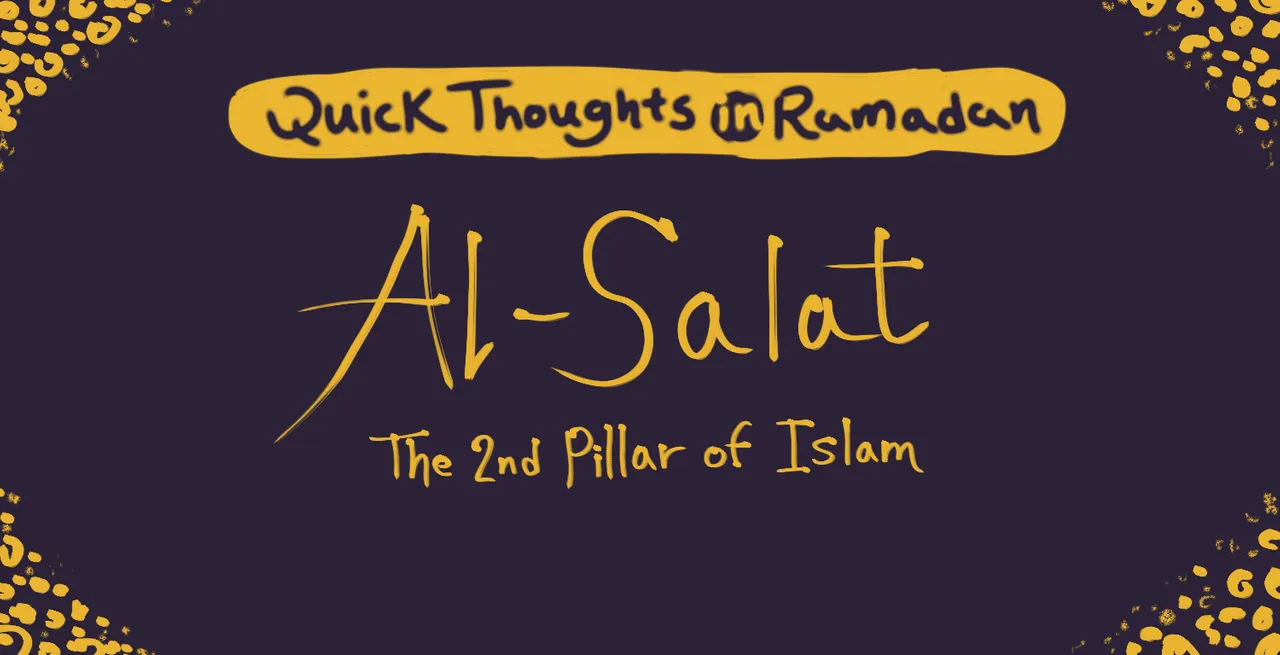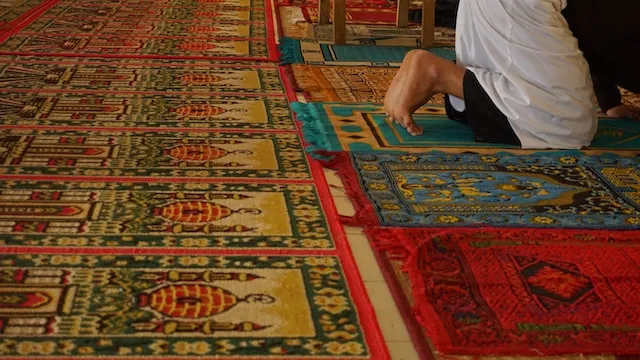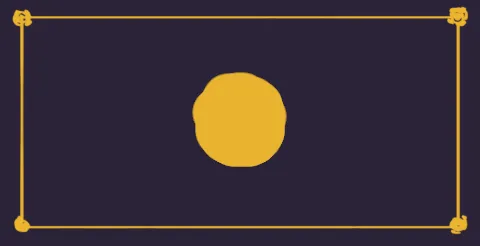"Below we'll explore the second Pillar of Islam: Al-Salat.
In the first article of this series, I talked briefly about each of the Pillars of Islam. These are the Shahada (The Testimony,) Salat (The Daily Prayers,) Zakat (Almsgiving,) Fasting in Ramadan, and Hajj (The Pilgrimage.)
I promised I'll talk about each of them in a more detailed way. In the previous article, I talked about the first Pillar: Al-Shahada. In this article, I'll talk about the second Pillar: Al-Salat.


Al Salat
(الصلاة - The Daily Prayers)
The second Pillar of Islam is the obligatory Prayers.
Muslims have to pray 5 times at specified times during each day: These times are at Dawn, Midday, Afternoon, Evening, and Night.
These Prayers are something you can't skip as a Muslim. Failing to pray in time without a reason is a Major Sin in Islam while refusing to practice Prayer at all goes against your faith/Shahada as it's one of the Pillars and its importance is iterated all the time in the Qur'an.
The Arabic word صلاة has the same root as صلة (Connection.) The practice of these prayers ensures constant mindfulness of God.
The Salat is performed in various steps and they must be practiced in order. These include Standing, Bowing, and Prostrating while glorifying Allah and reading the Qur'an.
I won't talk about the details in this article, so you should find better sources if you're interested in more information, but I'll say it's the daily Prayers of the things I love about my religion.


Cleaning Your Heart
Al-Salat has a cleansing effect. Reconnecting ourselves with God multiple times per day affects our lives and makes us less likely to do evil, because we have been or will be in God's presence.
ٱتْلُ مَآ أُوحِىَ إِلَيْكَ مِنَ ٱلْكِتَـٰبِ وَأَقِمِ ٱلصَّلَوٰةَ ۖ إِنَّ ٱلصَّلَوٰةَ تَنْهَىٰ عَنِ ٱلْفَحْشَآءِ وَٱلْمُنكَرِ ۗ وَلَذِكْرُ ٱللَّهِ أَكْبَرُ ۗ وَٱللَّهُ يَعْلَمُ مَا تَصْنَعُونَ
Recite what has been revealed to you of the Book and establish prayer. Indeed, ˹genuine˺ prayer should deter ˹one˺ from indecency and wickedness. The remembrance of Allah is ˹an˺ even greater ˹deterrent˺. And Allah ˹fully˺ knows what you ˹all˺ do.
-- Qur'an - Surah Al-ankabut (29:45)
Also, since you have to read Qur'an in Arabic during the prayers, each Muslim will have to memorize something of the Qur'an at all times which encourages learning new verses of the Qur'an, reviewing what they already learned, and exploring new meanings in what they already memorized. It's one of the ways the Qur'an has been preserved for 14 centuries.

The Basics Must be Re-iterated
Overall, Prayers are one of the few things that kept my life in check when I was dealing with mental problems. When I sinned, it was a reminder that brought my Conscience back.
I don't claim to be the best Muslim out there, but I can say for sure that these daily Prayers have affected me for the better and I would've strayed a long time ago if I didn't keep up with them.
This takes me to the next point: The basics are always the things that need the most repetition. It's basic human psychology. Habits, good or bad are what define who we are. That describes the second pillar of Islam perfectly:
Al-salat is a habit that helps a Muslim keep a connection with God at all times.
Up Next: Al-Zakat (Alms-giving)
Next time, we'll discuss the third pillar of Islam. Al-Zakat is the pillar I have the least experience with, so reading about it to write a post was a big educational experience for me. I hope you're excited for the next article. I see you there (إن شاء الله) and Thanks for reading.

Posts in This Series:
 |  |  |
|---|---|---|
 |  |  |

[ * ] The featured image is created using ibisPaint. The second image is from Unsplash.
[ * ] You might've already noticed this, but I use the words God and Allah interchangeably in this series.